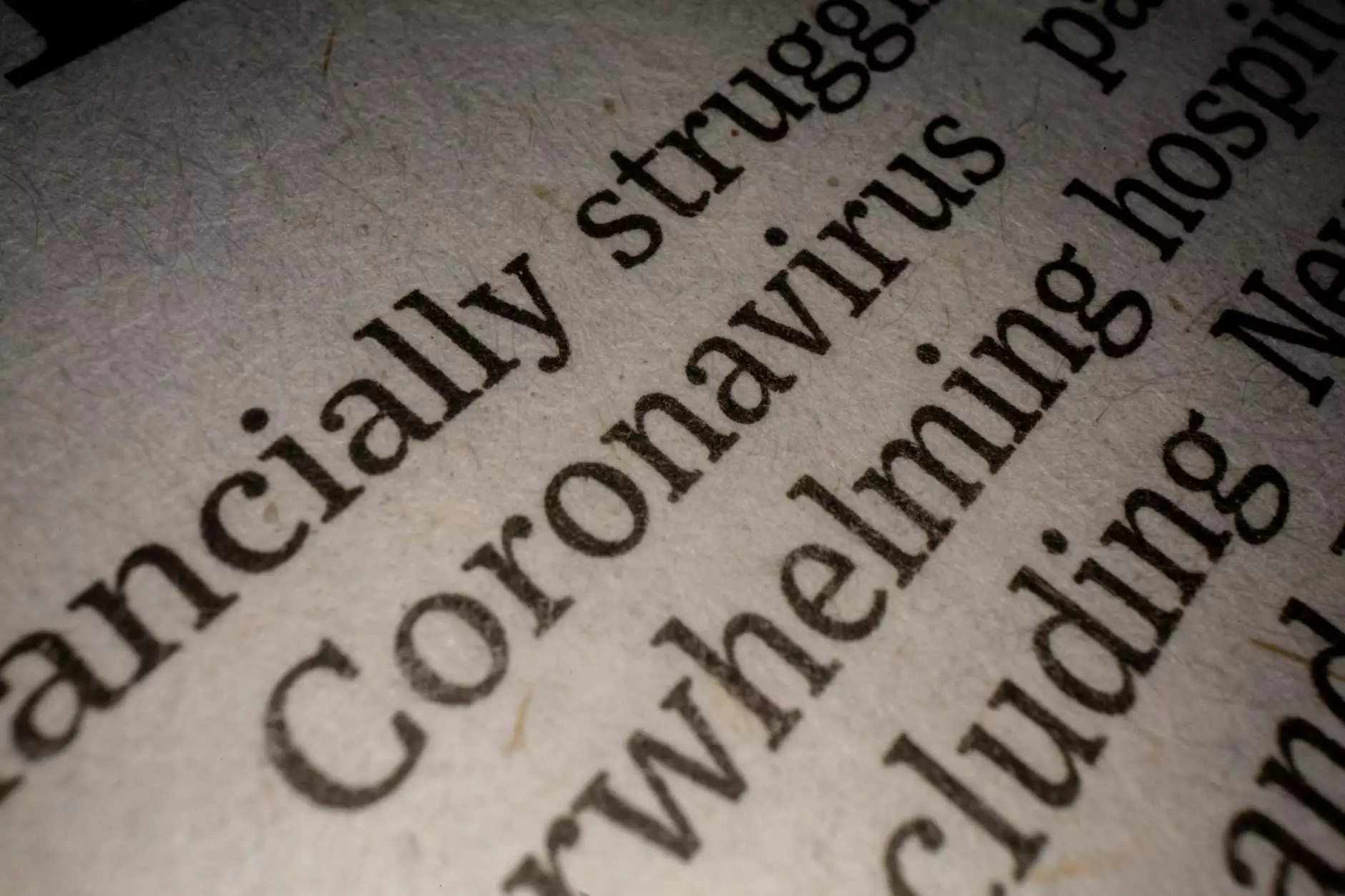Spasticity Evaluation

Understanding Spasticity and Its Impact
Spasticity is a complex condition often experienced by individuals with certain neurological disorders, such as cerebral palsy, multiple sclerosis, or stroke. It occurs due to an increased muscle tone, causing stiffness, involuntary muscle contractions, and difficulty with movement. If you or a loved one is experiencing symptoms related to spasticity, seeking a professional evaluation is crucial for developing an effective treatment plan.
Comprehensive Evaluation Process
At Foley James D MD, we specialize in providing comprehensive evaluations for spasticity. Our experienced team of medical professionals understands the challenges and impact spasticity can have on daily life. Our evaluation process involves:
- Medical History: Understanding your medical history and any underlying conditions is vital in assessing the severity and potential contributing factors of spasticity.
- Physical Examination: A thorough physical examination will be conducted to assess muscle tone, reflexes, range of motion, and any functional limitations caused by spasticity.
- Diagnostic Tests: Additional diagnostic tests, such as electromyography (EMG), imaging scans, or nerve conduction studies, may be performed to further evaluate the extent and underlying causes of spasticity.
Personalized Treatment Plans
Based on the findings of the spasticity evaluation, our team will develop a personalized treatment plan tailored to your unique needs. This comprehensive plan might include:
- Physical Therapy: Targeted exercise programs and stretching techniques can help improve muscle strength, flexibility, and overall mobility.
- Oral Medications: In some cases, medications like muscle relaxants or anti-spasticity drugs may be prescribed to help manage spasticity.
- Intramuscular Injections: Botox injections or phenol nerve blocks can be administered to temporarily relieve muscle stiffness and reduce spasticity.
- Intrathecal Baclofen Pump: For severe spasticity cases, an intrathecal baclofen pump may be recommended. This device delivers medication directly into the spinal fluid to relax the muscles affected by spasticity.
Supportive Care and Rehabilitation
Managing spasticity goes beyond medical treatments alone. At Foley James D MD, we understand the importance of holistic care, supportive therapies, and rehabilitation. Our team will provide guidance on:
- Assistive Devices: Recommending and providing assistive devices, such as braces, splints, or orthotics, to support mobility and relieve the effects of spasticity.
- Occupational Therapy: Offering strategies to improve daily function and independence through adaptive techniques.
- Pain Management: Addressing any pain associated with spasticity and providing appropriate pain management strategies to enhance overall quality of life.
- Support Groups: Connecting you with local support groups or online communities where you can connect with others facing similar challenges.
Importance of Regular Follow-ups
Managing spasticity requires ongoing attention and follow-up care. Our team at Foley James D MD will schedule regular follow-up appointments to assess treatment progress, modify the treatment plan if necessary, and ensure you receive the support you need on your journey towards improved mobility and well-being.
If you or a loved one is struggling with spasticity, don't hesitate to contact Foley James D MD. Our experienced team is dedicated to providing exceptional care, reliable support, and evidence-based treatments to help you manage spasticity effectively and regain control over your life.




